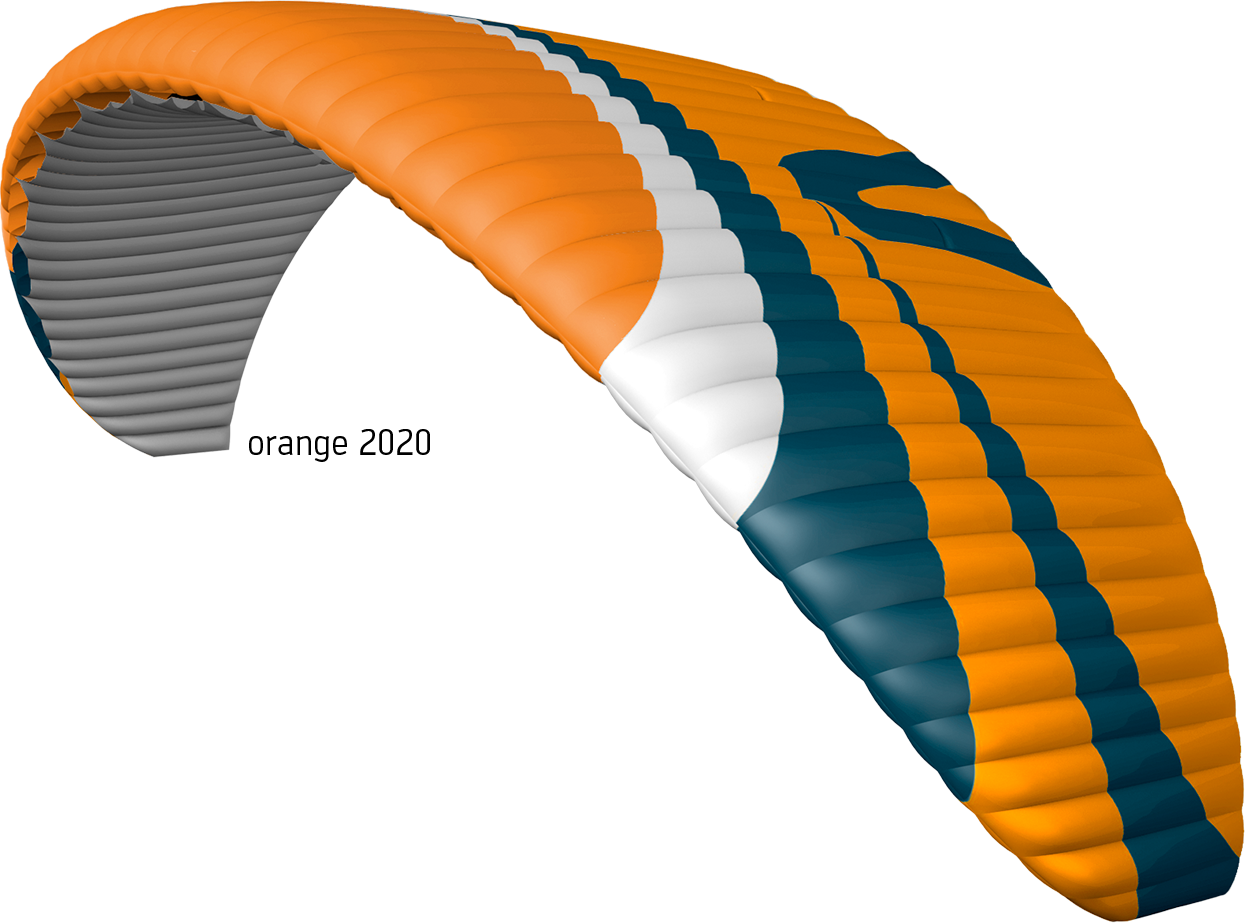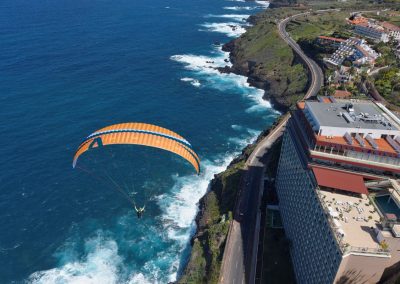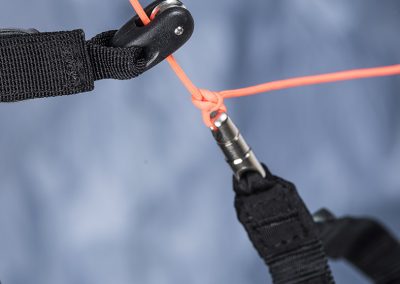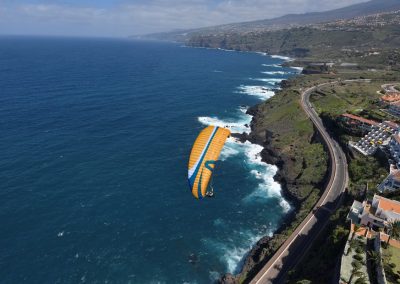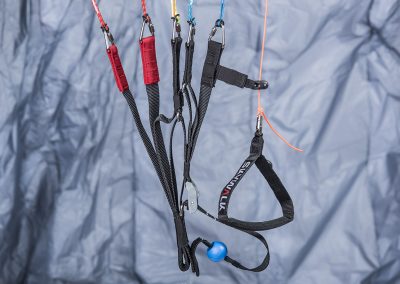One wing for two.
Flying together. Enjoying together.
With its huge weight range (100 – 200 kg for size S and 130 – 225 kg for size M), the JOIN’T3 is the ideal companion for both lightweight and heavyweight couples. Two sizes offer both in the lower and upper weight ranges a rich feeling of flight with the highest stability. The rounded handling with smooth brake line travel is among the finest in the tandem class.
The JOIN’T3 is the fun-glider of the tandems – whether in commercial or private use. The fun begins at launch because the low weight of JOIN’T3 means it’s easy to kite. After a surprisingly short take-off distance, pilot and passenger are airborne. Its direct handling will thrill you in thermals, while losing altitude over the landing site, and while showing off to your passenger with some dynamic maneuvers. Thanks to its simple flaring, point landings with JOIN’T3 are easy.
“Because it’s even more fun together…!”

JET FLAPS
Our JET FLAPS extend the green arc as you approach the stall point, which substantially increases safety and also improves climb performance.

RIGID FOIL
The Rigid Foil nylon wires on the leading edge help maintain its shape and ensure constant ram air pressure. Advantages: better takeoff behavior, more performance and lower canopy weight.
| Size | S | M |
| Cells | 49 | 49 |
| Area flat (m²) | 37,5 | 41,2 |
| Area projected (m²) | 32,0 | 35,2 |
| Wingspan flat (m) | 14,2 | 14,87 |
| Wingspan projected (m) | 11,2 | 11,73 |
| Aspect ratio flat | 5,37 | 5,37 |
| Aspect ratio projected | 3,91 | 3,91 |
| min. profile depth | 64,8 | 67,9 |
| max. profile depth | 330,9 | 346,8 |
| Glider weight (kg) | 7,2 | 7,6 |
| Certified weight range (kg) | 100 - 200 | 130 - 225 |
| Upper sail | Porcher Sport 9017 E25A / Dominico 20 DMF |
| Lower sail | Dominico 20 DMF 34 |
| Ribs | Porcher Sport Skytex 38 hard |
| Bands | Porcher Sport Skytex 38 hard |
| Main lines | Liros NTSL 350, TSL 280 |
| Middle lines | Liros TSL 280/190 |
| Top lines | Liros PPSL 120, DSL 70 |
| Brake lines | Liros DFLP 200/32, PPSL 120, DSL 70 |
| Risers | Cousin Freres 25mm Polyester |
What are the glide ratio (L/D), trim and maximum speeds?
We know that these data are interesting for you as a pilot, but for us to publish them would be a bad idea for the following reasons:
1) Performance data are highly dependent on the drag of the pilot and are therefore related to sitting position and harness. The difference between aerodynamically favorable and unfavorable harnesses and sitting positions can be as much as a whole L/D number.
2) Performance increases with the size of the glider. A large glider will always outperform the same glider in a smaller size. So a question about the performance of a glider is always also a question about the size.
3) There is no normed method of testing the performance of paragliders. For example, speed varies with altitude and the associated different air pressure, but also with the total weight of the system.
That means that there simply isn’t THE speed or THE L/D that would allow a serious comparison with another glider. Performance data are dependent on the harness, the size of the glider, on the air mass and the total weight.
Is it OK for me to shorten the brake lines on my skywalk paraglider?
Changing the length of the brake lines can have a negative effect on the flying characteristics and extreme flight behavior. The paraglider needs a little more lead when flying on speed bar, otherwise the glider could be braked unintentionally, leading to a loss of performance. When performig extreme flying maneuvers, shortening the brake lines too much can cause complications during recovery from collapses, parachutal stall, etc.
Am I allowed to make modifciations to my skywalk paraglider?
No, because the glider is certified the way it is delivered to you. Even the brake line length is part of the trim and must not be changed.
Do the nylon wires in the glider near any special attention or packing method?
Our nylon wires are flexible and kink resistant, so they won’t break under normal circumstances. But due to the packing volume it is a good idea to lay the Rigid Foils in the leading on top of each other on both sides.
What are JET FLAPS and how do they work?
JET FLAPS are a so-called split flap like those seen on a large airplane. When the glider is braked, the airflow is routed through the glider, restoring smooth airflow. This extends brake line travel and softens the stall behavior.
What advantage do the JET FLAPS on my skywalk paraglider offer?
Lower flyable minimum airspeed. The speed range is wider and easier to control. The pilot has more time to react when flying near the stall point.
Your JOIN'T3 package
- 1x Compression strap
- 1x Innerbag for glider
- 1x Manual
- 1x Bandana
- 1x Self-adhesive repair patch
- Stickers
Optional accessories:- Spreader Bar Regular (2 pieces)
- Aluminium Carabiners Austri Alpin


